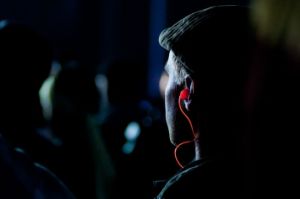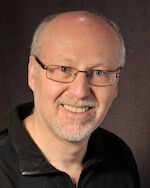|
www.HearingDirectory.ca |
Hearing Loss Prevention: Tips to Protect Your Ears
By Marshall Chasin, Doctor of audiology, AuD, Audiologist, and Shantelle Shakes, BA (Hons)., Hearing Health Information Coordinator, Hearing Directory, and Joy Victory, Managing Editor, Healthy Hearing Last updated on: May 28th, 2025 Limiting your exposure to loud noise is the top way to prevent hearing loss, but there are other lifestyle changes you can make to reduce your risk even more. Key points:
Hearing loss is a natural consequence of aging. But there are actions you can take to decelerate the process. You can even prevent some types of hearing loss. Preventable forms include:
You can centre your hearing loss prevention strategy around your personal risk factors. Consider the noise levels during your commute and hobbies, and at your workplace. How to prevent hearing lossHere is a breakdown of each form of preventable hearing loss and what you can do to protect your hearing. Protecting against noise-induced hearing lossNoise-induced hearing loss (NIHL) is one of the most preventable. Most people develop NIHL either from their job or their hobbies. There are two main factors that contribute to NIHL:
The combination of these factors is the "noise exposure dose.” If you exceed 100% of the dose often enough, there is the potential for damage to your hearing. This could result in permanent hearing loss, but not immediately. Sometimes, a damaging level of noise exposure is not painful and is rarely noticed. Its effects are invisible, at least in the short term. You may not notice the effects for many years, when the damage is already done. A damaging sound level (measured in decibels or dB) is around 85 dB or higher. To put that in perspective, 85 dB is roughly the volume level of busy city traffic. Hearing and worksite safety
by wearing hearing protection as much as you can. Unfortunately, many workplaces expose workers to sounds that are 85 dB or greater. This may cause some measurable hearing loss. Likewise, many people engage in hobbies that are louder than this. They attend live music shows, ride motorcycles or shoot firearms without hearing protection. Headphones and hearing lossHeadphones and earbuds are not harmful to your hearing alone. How loud you crank up the sound when you listen to music can be harmful. At home, this may not be an issue if there is little background noise. But with portability comes noisy environments. In the quiet of your home, a comfortable listening level may be volume 3 out of 10. But while walking next to a construction site, your comfortable volume may change to 6 out of 10. In both cases, the music was the same “loudness” but while listening in a noisier place, the “sound level” was higher. This is can be damaging to your hearing. 
loud music at a concert. Prevention tip: wear hearing protectionHearing protection is the best way to reduce your risk of noise-induced hearing loss. Earmuffs or noise-cancelling headphones placed completely over the ear create a seal. This can lower noise levels by 15 to 30 db. They come in wired and wireless forms and can be light-weight for prolonged wear. You can combine earmuffs with earplugs and worn together for ultimate noise protection. Earplugs lower noise levels by 15 to 30 db. They come in disposable or reusable forms. They also have specialized material to prevent damaging noise. You will still hear important sounds like doorbells, phones, and alarm clocks. You can have earplugs customized, providing better comfort and ease in maintenance. Customized earplugs are more comfortable and made from materials that will last longer. For musicians and people who like to go to concerts, there is a special type of hearing protection. Some clinics offer musicians’ earplugs. These have been available since the late 1980s. Musicians’ earplugs offer roughly 15 dB of hearing protection. This is the same protection for the bass notes, the mid-range notes, and the treble notes. Preventing hearing loss from medicationsMore than 200 drugs have hearing loss or tinnitus as a possible side effect. They include
There are certain factors that increase one's risk of drug-induced hearing loss:
Prevention tip: be mindful of medication side effectsSometimes, exposure to ototoxic drugs that cause hearing loss is life-saving. It can be worth the risk of hearing loss or tinnitus. But try to avoid known ototoxic drugs when safer, effective alternatives are available. If you take a new medication and experience changes in your hearing, contact your doctor ASAP. Hearing loss prevention through lifestyle changesSome health conditions and habits can affect your hearing health. Both heart disease and diabetes increase your risk of hearing loss. That's because they impact proper blood flow to the ears, which is vital for healthy hearing. Smoking damages your vascular system, which in turn affects your hearing. If the ears don't have a healthy supply of oxygen-rich blood, they are more prone to damage. Prevention tip: focus on a healthy lifestyleHealthy habits and choices may help prevent hearing loss and reduce your risk. Here are some tips: Take your blood pressure medications as prescribed
Attention to your general health will benefit your hearing health too. How do I know if I've damaged my hearing?How do you know if loud is too loud? Many smartphone and smartwatch apps can measure your dose of loud listening. Some apps can even alert you when you're in an environment noisy enough to damage your hearing. The most important rule of thumb: If a situation feels too loud, it probably is.
For an official hearing loss diagnosis, book a hearing test. If your hearing test indicates a form of hearing loss, you can take action to prevent it from getting worse. Your hearing care professional will review the results with you and provide counsel. Treatment may include hearing aids, alternative treatment options or preventive strategies. Marshall Chasin, Doctor of audiology, Audiologist
Shantelle Shakes, BA (Hons)., Hearing Health Information Coordinator, Hearing Directory
Joy Victory, Managing Editor, Healthy Hearing
You are reading about: Related topics
More information about hearing aids. Featured clinics near me
Schedule a hearing test with Healthy Hearing. Find a clinicThe Healthy Hearing Report |
|
www.HearingDirectory.ca |
Hearing Loss Prevention: Tips to Protect Your Ears
By Marshall Chasin, Doctor of audiology, AuD, Audiologist, and Shantelle Shakes, BA (Hons)., Hearing Health Information Coordinator, Hearing Directory, and Joy Victory, Managing Editor, Healthy Hearing Last updated on: May 28th, 2025 Limiting your exposure to loud noise is the top way to prevent hearing loss, but there are other lifestyle changes you can make to reduce your risk even more. |
 Are you located in the United States?
Are you located in the United States?


 Contributing author Marshall Chasin is the Director of Audiology at the Musicians' Clinics of Canada, Adjunct Linguistics Professor at the University of Toronto, and Associate Professor in the School of Communication Disorders and Sciences at Western University. He is the author of over 200 articles and 8 books including "Musicians and the Prevention of Hearing Loss" and writes a monthly column called Back to Basics in the Hearing Review. In addition, Marshall has developed a new app called "Temporary Hearing Loss Test," a tool to help prevent hearing loss. Marshall has been the recipient of many awards over the years including the 2012 Queen Elizabeth II Silver Jubilee Award and the 2017 Canada 150 Medal. Marshall obtained his master's degree in audiology and speech sciences at the University of British Columbia and his doctorate degree from the Arizona School of Health Sciences.
Contributing author Marshall Chasin is the Director of Audiology at the Musicians' Clinics of Canada, Adjunct Linguistics Professor at the University of Toronto, and Associate Professor in the School of Communication Disorders and Sciences at Western University. He is the author of over 200 articles and 8 books including "Musicians and the Prevention of Hearing Loss" and writes a monthly column called Back to Basics in the Hearing Review. In addition, Marshall has developed a new app called "Temporary Hearing Loss Test," a tool to help prevent hearing loss. Marshall has been the recipient of many awards over the years including the 2012 Queen Elizabeth II Silver Jubilee Award and the 2017 Canada 150 Medal. Marshall obtained his master's degree in audiology and speech sciences at the University of British Columbia and his doctorate degree from the Arizona School of Health Sciences.
 Shantelle Shakes is the hearing health information coordinator for Hearing Directory. She has over ten years of experience in the health industry, with nine of those years in hearing healthcare. After graduating from York University with an honours BA in professional writing, minor in creative writing, Shantelle began her marketing career with a major hearing healthcare provider. Through a variety of roles within that company, Shantelle gained a thorough understanding of hearing health and the client experience. She aims to use her knowledge of the industry as well as her communications background to help others understand their hearing and connect with the hearing care they need.
Shantelle Shakes is the hearing health information coordinator for Hearing Directory. She has over ten years of experience in the health industry, with nine of those years in hearing healthcare. After graduating from York University with an honours BA in professional writing, minor in creative writing, Shantelle began her marketing career with a major hearing healthcare provider. Through a variety of roles within that company, Shantelle gained a thorough understanding of hearing health and the client experience. She aims to use her knowledge of the industry as well as her communications background to help others understand their hearing and connect with the hearing care they need.
 Joy Victory is the Managing Editor of Hearing Directory and the U.S.-based site Healthy Hearing. She has extensive experience editing consumer health information. Her training in particular has focused on how to best communicate evidence-based medical guidelines and clinical trial results to the public. She strives to make health content accurate, accessible and engaging to the public.
Joy Victory is the Managing Editor of Hearing Directory and the U.S.-based site Healthy Hearing. She has extensive experience editing consumer health information. Her training in particular has focused on how to best communicate evidence-based medical guidelines and clinical trial results to the public. She strives to make health content accurate, accessible and engaging to the public.